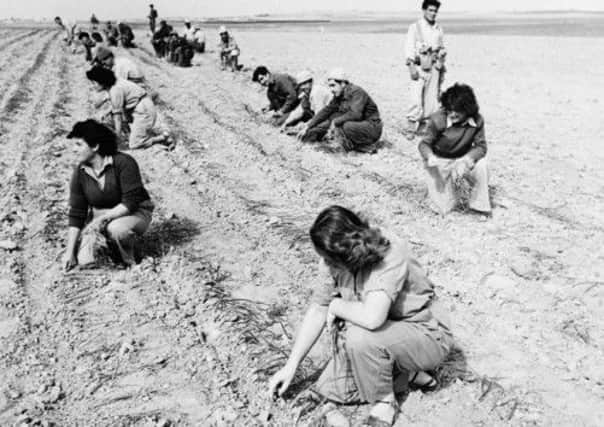Book review: Between Friends by Amos Oz


Between Friends by Amos Oz
Chatto & Windus, 198pp, £12.99
For 31 years he embraced kibbutz life, became a husband and a father, fought in campaigns in the Sinai desert and Golan Heights. During this time he was writing novels, short stories and essays, while performing the communal tasks required of every committed kibbutznik.
This background helps us understand the steely, spirited independence of the writer (Israel’s finest and most diverse?) who, now in his seventies, has created the eight story episodes comprising Between Friends.
Advertisement
Hide AdIf Oz the boy bestrides the pages of “A Tale of Love and Darkness” (his seismic, cathartic, confessional, semi-autobiography), Oz the elder clearly inhabits, though by proxy, this tender, affectionate, sometimes amused and not uncritical portrait of lives and ingrained routines in the rugged fields, stone walls, and compound of practical buildings, built to last, that make up the substance and querulous heart of Kibbutz Yekhat.
These are the post-independence years that marked, we are told, “the rebirth of the State of Israel”. Kibbutz Yekhat is facing change. The middle-aged warhorse who fought the British, David Ben Gurion, is in power. It is an era of high alert, of aspiration and huge expectation, a time through which Oz, his teenage senses on full alert as a writer-to-be, first encountered the zeal of burgeoning Israel’s brave new order.
He brings that era and its attitudes to life, overlaying his sense of nuanced perspective gained through 60 years of telescopic distancing, with a piquant sense of fly-on-the-wall immediacy, introducing us to a gallery of characters, with their alliances, confrontations, quirks and instincts, their intransigent rules and procedures which govern pedantic and argumentative committees.
These eight brief pieces each deal with situations and episodes; they almost comprise a novella, since they feature the same cast of characters and locations, and, taken in order, are chronological. Theirs is a postage stamp of the earth to which the protagonists adhere, brought together paradoxically by ardent individualism and principle.
Though the desert may be golden in the sunlight, and blessed with the consolation of breezes, daily life is demanding and rigorous. No-one slacks; the beady eyes of the most judgmental feed the gossipmongers and the satirists. Life is not dull.
Or, if it is, it transforms into sprites of mischief and daring, rebellion and folly, anger, remorse and disappointment. Zvi Provizor, “a short 55-year old bachelor” is a carrier of ill tidings: “In Spain an orphanage burned down” or “I read in a newspaper that in Hiroshima, ten years after the bomb, there were still no birds.” Roni Shindlin, the kibbutz comedian, addresses Zvi as the “Angel of Death”.
Advertisement
Hide AdIn the opening narrative Luna Blank, a widowed teacher offers Zvi tenderness. Yet the threat of something so intimate makes him shrivel, while Zvi’s rebuff renders Luna defiantly, almost deliciously capricious. Meanwhile, when Boaz, the testosterone-dripping plumber, leaves his wife Osnat for Ariella, “a divorcee with a slender neck”, the women begin a correspondence, and Ariella pours out her conscience.
In the title story Nahum crucially dithers, when his 17-year-old daughter moves in with her history teacher, the fiftysomething philanderer, David Dagan. While, in “At Night”, the most revealing of the narratives, Yoav, the night guard, “carelessly shaven, absent-minded and contemplative” wades unguarded into the depths of his own former yearnings, beneath which the quicksands of infidelity lie.
Advertisement
Hide AdThe story “Deir Ajloun” is an exception, and a welcome one – in that it takes us over the walls and up the mountain to a ruined Arab fortress, with its blocked well and displaced people (the absent Arabs). There, engulfed by the debris of history, youthful Yotam considers his future: to be or not to be a kibbutznik?
Oz lifts the veil on kibbutz existence without palaver. His pin-point descriptions of individuals and spaces (a kitchen, a dormitory, an office) are pared to perfection in order to resonate. His people twitch with life.
In this regard his new translator, Sondra Silverston, is exemplary in finding both meaning and music in Oz’s voice: It’s the drone of loneliness in the wasp’s nest of constant gossip that is the kibbutz; it’s the meaning of individuality, caught in a collective that strives to define you. It’s Oz to a tee.